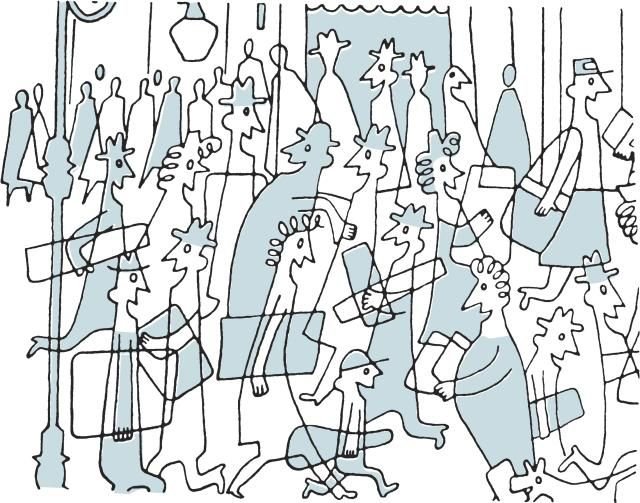On the one hand, the personality is built on a body - physiological and individual - constitutional basis. On the other hand, the entire social experience, attitudes and mechanisms of social interaction to which the person should adequately match correspond to it. For the specific sphere of social psychology, a person can be defined as a combination of psychic and social traits, both the cause and the result of communication and interaction between people in relation to socially significant activities and relationships.
The richness of the concept of personality gives rise to many different approaches to the question of socialization. In most general terms, it represents attitude, a process in which the person acquires a certain social experience and forms socially significant traits under the influence of the active influence of the social order. But in general, it is, at the same time, a legal transition from more elementary to more perfect forms of interaction with the social and natural disaster surrounding the individual. This associates socialization with development, which is a generic concept in relation to it, and to which it represents an independent aspect, together with anatomical physiological maturation, the dynamics of neuro-mental functions, etc. When socialization refers to a purposeful impact of society in the face of the older generation in order to prepare the adolescents for their future social life, it comes down to education. Education has its own institutionalized subject - the family, the education system, etc.
As socialization is bringing the human individual in a state of adequate interaction with the surrounding social environment, it is identical with the social adaptation. However, when considering the active forms of adaptation in which the individual acts on the environment that adapts it to himself, social adaptation becomes more important than socialization. Not every socialization, however, is an adaptation. For example, such phenomena as stigma, prejudices, etc. , occur in the process of socialization, but actually have disadaptive functions in the life of the individual. Non-socialized people are not. Antisocial behavior is the result of the shortcomings in the course of socialization. There is no unequivocal opinion on the length of the process. There are two things, and they are: that the process ends with the advent of maturity, and that it runs through life. Socialization is planned. It is logical to assume that socialization continues throughout life through various stages. Each society must plan and implement the socialization of different age groups. This process is culturally and historically conditioned.
As in the current situation, there are many specifics with two main accents, namely - the criteria for social maturity are complicated and change in structure and character; the factors of socialization. Social psychology lacks a clear definition of the problem. Definitions have the following accents: - the process of learning social experience; - a process by which the individual integrates into society by acquiring skills for social interaction; - process of adaptation to the environment; - the process of learning social roles, statuses and values; - a process by which the cultural norms of a society are internalized. Socialization is a two-way process.

Well psychology is a depth of many field in human behaviour and actions. It is good that you are specifying one of them.
Downvoting a post can decrease pending rewards and make it less visible. Common reasons:
Submit
I wonder how the phenomenon of psychopathy interfaces or doesn't interface with social psychological principals.
Downvoting a post can decrease pending rewards and make it less visible. Common reasons:
Submit